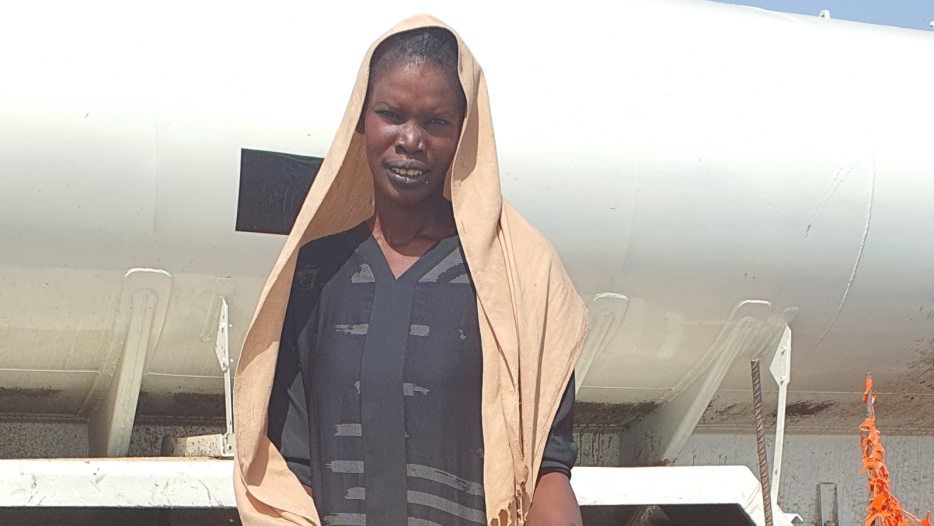by Dr Manenji Mangundu, Oxfam South Sudan Country Director
As a midwife, Angelica used to spend her days helping to deliver babies in a hospital in the Sudanese capital Khartoum. That was before the fighting began.
Now she helps to deliver babies out in the open – on the dusty ground – in South Sudan, at a camp in the border port town of Renk.
“We need water and basic supplies: we don’t have soap,” Angelica explains. “Many people, including pregnant mothers, come here every day and we don’t have enough to help them.”
Since the violence in Sudan erupted in mid-April, over 1,100 people have been killed and over three million people have been forced from their homes: more than 650,000 of whom have sought safety in Sudan’s neighbouring countries. Despite a series of temporary cease fires, a sustainable peace remains elusive.
Angelica is just one of the nearly 190,000 people who have fled to neighbouring South Sudan, in search of safety. Like Angelica, most people come through Renk, in the country’s Upper Nile State.
These arrivals are met by a country already engulfed in its own complex crises: affected by decades of war, marginalisation and underinvestment, corruption, economic crisis, natural disasters, migration, and the declining interest of international donors.
As a result, South Sudan – where the average life expectancy is just 55 – is perpetually stalked by severe hunger. The country has consistently topped the world’s hungriest nations for the last five years and ranks last on the Human Development Index of 191 countries: unenviable accolades for one of the world’s youngest nations. Even before the conflict in neighbouring Sudan began, three in four people in South Sudan needed humanitarian assistance.
It’s a snowballing tragedy.
The transit centre in Renk – set up in the state’s derelict university buildings – is severely overcrowded, leaving people sleeping in the open as they wait and hope to move on
Some returnees and refugees have found their way by road onwards to Unity State and other parts of Upper Nile. Thousands of other families continue to camp at Palouch Airport in the oil producing region – waiting to board long delayed, overcrowded planes.
“We ran away from death only to another death trap here,” says Mary, another woman like Angelica who has found herself in Renk, matter-of-factly.
Oxfam, along with our partners and other aid agencies, are working round the clock to provide people living outside of the transit centres in Renk with money to access lifesaving essentials.
Earlier this summer, the Scottish Government announced it was donating a hugely welcome £250,000 – including £125,00 to Oxfam – from its Humanitarian Emergency Fund to respond to the crisis. These funds are helping us reach over 700 households: providing them with cash to buy food and other basic necessities.
But as each day passes, the situation becomes precarious, with the UN appeal remaining chronically underfunded. And with the arrival of the rainy season comes the looming threat of rampant disease like diarrhoea, pneumonia, malaria, typhoid, and yet more death.
The situation in South Sudan, while dire, is far from unique.
World Humanitarian Day – marked today – provides a grim reminder that global humanitarian needs this year are at record levels once again. According to the UN, 360 million people worldwide need humanitarian assistance, up 30 per cent since the start of last year. More than 110 million people have been forced from their homes. And more than 260 million people face acute food insecurity, with some at risk of famine.
My colleagues in the humanitarian community around the world work tirelessly, day in, day out, to save as many lives as possible, operating in some of the most difficult and violent places in the world.
Governments around the world must now show the same resolve. More funds are urgently needed. So too, is sustained action to end conflicts, tackle climate change and cure the economic malaise fuelling poverty and inequality around the world.
Otherwise, millions of ordinary people like Angelica and Mary – here in South Sudan and beyond – will continue to pay the price for the global political leaders’ collective failure of conscience.
